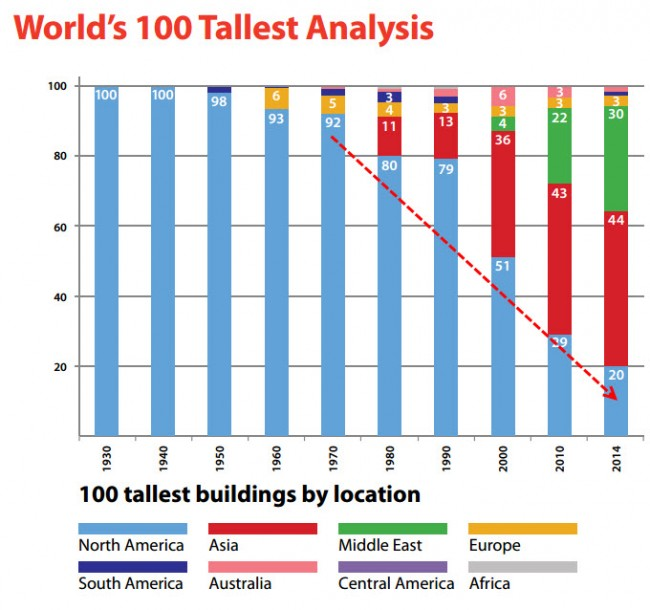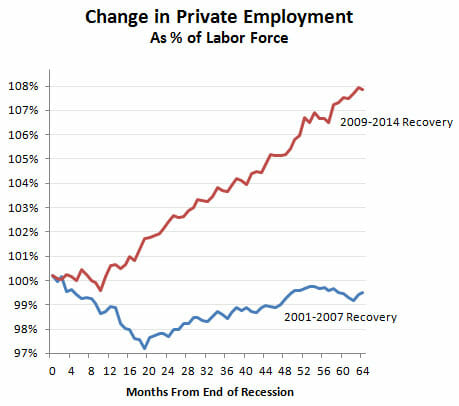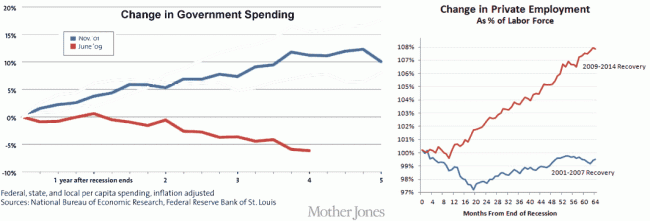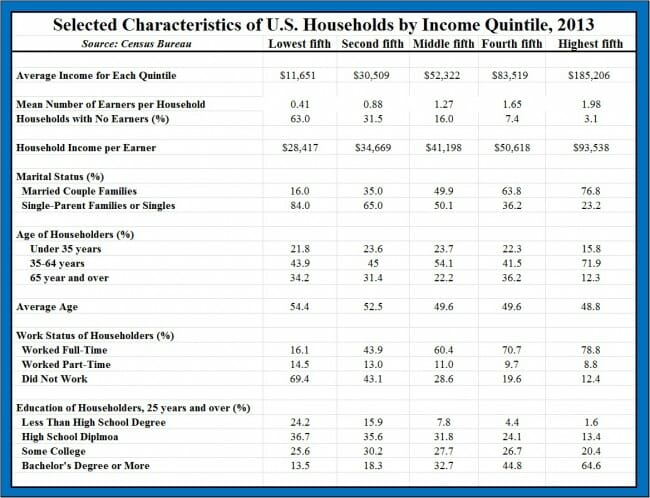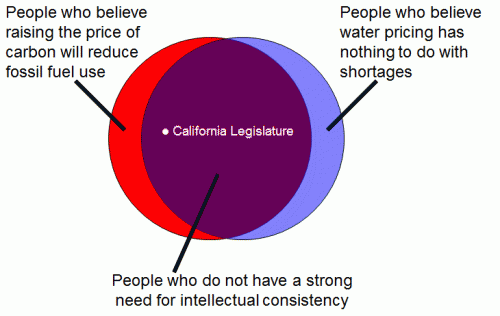Arnold Kling on the recent financial crisis:
1. The facts are that one can just as easily blame the financial crash on an attempted tightening of regulation. That is, in the process of trying to rein in bank risk-taking by adopting risk-based capital regulations, regulators gave preference to highly-rated mortgage-backed securities, which in turn led to the manufacturing of such securities out of sub-prime loans.
2. The global imbalances that many of us thought were a bigger risk factor than the housing bubble did not in fact blow up the way that we thought that they would. The housing bubble blew up instead.
What he is referring to is a redefinition by governments in the Basel accords of how capital levels at banks should be calculated when determining capital sufficiency. I will oversimplify here, but basically it categorized some assets as "safe" and some as "risky". Those that were risky had their value cut in half for purposes of capital calculations, while those that were "safe" had their value counted at 100%. So if a bank invested a million dollars in safe assets, that would count as a million dollar towards its capital requirements, but would count only $500,000 towards those requirements if it were invested in risky assets. As a result, a bank that needed a billion dollars in capital would need a billion of safe assets or two billion of risky assets.
Well, this obviously created a strong incentive for banks to invest in assets deemed by the government as "safe". Which of course was the whole point -- if we are going to have taxpayer-backed deposit insurance and bank bailouts, the prices of that is getting into banks' shorts about the risks they are taking with their investments. This is the attempted tightening of regulation to which Kling refers. Regulators were trying for tougher, not weaker standards.
But any libertarian could tell you the problem that is coming here -- the regulatory effort was substituting the risk judgement of thousands or millions of people (individual bank and financial investors) for the risk judgement of a few regulators. There is no guarantee, in fact no reason to believe, the judgement of these regulators is any better than the judgement of the banks. Their incentives might be different, but there is also not any guarantee the regulators' incentives are better (the notion they are driven by the "public good" is a cozy myth that never actually occurs in reality).
Anyway, what assets did the regulators choose as "safe"? Again, we will simplify, but basically sovereign debt and mortgages (including the least risky tranches of mortgage-backed debt). So you are a bank president in this new regime. You only have enough capital to meet government requirements if you get 100% credit for your investments, so it must be invested in "safe" assets. What do you tell your investment staff? You tell them to go invest the money in the "safe" asset that has the highest return.
And for most banks, this was mortgage-backed securities. So, using the word Brad DeLong applied to deregulation, there was an "orgy" of buying of mortgage-backed securities. There was simply enormous demand. You hear stories about fraud and people cooking up all kinds of crazy mortgage products and trying to shove as many people as possible into mortgages, and here is one reason -- banks needed these things. For the average investor, most of us stayed out. In the 1980's, mortgage-backed securities were a pretty good investment for individuals looking for a bit more yield, but these changing regulations meant that banks needed these things, so the prices got bid up (and thus yields bid down) until they only made sense for the financial institutions that had to have them.
It was like suddenly passing a law saying that the only food people on government assistance could buy with their food stamps was oranges and orange derivatives (e.g. orange juice). Grocery stores would instantly be out of oranges and orange juice. People around the world would be scrambling to find ways to get more oranges to market. Fortunes would be made by clever people who could find more oranges. Fraud would likely occur as people watered down their orange derivatives or slipped in some Tang. Those of us not on government assistance would stay away from oranges and eat other things, since oranges were now incredibly expensive and would only be bought at their current prices by folks forced to do so. Eventually, things would settle down as everyone who could do so started to grow oranges. And all would be fine again, that is until there was a bad freeze and the orange crop failed.
Government regulation -- completely well-intentioned -- had created a mono-culture. The diversity of investment choices that might be present when every bank was making its own asset risk decisions was replaced by a regime where just a few regulators picked and chose the assets. And like any biological mono-culture, the ecosystem might be stronger for a while if those choices were good ones, but it made the whole system vulnerable to anything that might undermine mortgages. When the housing market got sick (and as Kling says government regulation had some blame there as well), the system was suddenly incredibly vulnerable because it was over-invested in this one type of asset. The US banking industry was a mono-culture through which a new disease ravaged the population.
Postscript: So with this experience in hand, banks moved out of mortage-backed securities and into the last "safe" asset, sovereign debt. And again, bank presidents told their folks to get the best possible yield in "safe" assets. So banks loaded up on sovereign debt, in particular increasing the demand for higher-yield debt from places like, say, Greece. Which helps to explain why the market still keeps buying up PIIGS debt when any rational person would consider these countries close to default. So these countries continue their deficit spending without any market check, because financial institutions keep buying this stuff because it is all they can buy. Which is where we are today, with a new monoculture of government debt, which government officials swear is the last "safe" asset. Stay tuned....
Postscript #2: Every failure and crisis does not have to be due to fraud and/or gross negligence. Certainly we had fraud and gross negligence, both by private and public parties. But I am reminded of a quote which I use all the time but to this day I still do not know if it is real. In the great mini-series "From the Earth to the Moon", the actor playing astronaut Frank Borman says to a Congressional investigation, vis a vis the fatal Apollo 1 fire, that it was "a failure of imagination." Engineers hadn't even considered the possibility of this kind of failure on the ground.
In the same way, for all the regulatory and private foibles associated with the 2008/9 financial crisis, there was also a failure of imagination. There were people who thought housing was a bubble. There were people who thought financial institutions were taking too much risk. There were people who thought mortgage lending standards were too lax. But with few exceptions, nobody from progressive Marxists to libertarian anarcho-capitalists, from regulators to bank risk managers, really believed there was substantial risk in the AAA tranches of mortgage securities. Hopefully we know better now but I doubt it.
Update#1: The LA Times attributes "failure of imagination" as a real quote from Borman. Good, I love that quote. When I was an engineer investigating actual failures of various sorts (in an oil refinery), the vast majority were human errors in procedure or the result of doing things unsafely that we really knew in advance to be unsafe. But the biggest fire we had when I was there was truly a failure of imagination. I won't go into it, but it resulted from a metallurgical failure that in turn resulted form a set of conditions that we never dreamed could have existed.
By the way, this is really off topic, but the current state of tort law has really killed quality safety discussion in companies of just this sort of thing. Every company should be asking itself all the time, "is this unsafe?" or "under what conditions might this be unsafe" or "what might happen if..." Unfortunately, honest discussions of possible safety issues often end up as plaintiff's evidence in trials. The attorney will say "the company KNEW it was unsafe and didn't do anything about it", often distorting what are honest and healthy internal discussions on safety that we should want occurring into evidence of evil malfeasance. So companies now show employees videos like one I remember called, I kid you not, "don't write it down."

